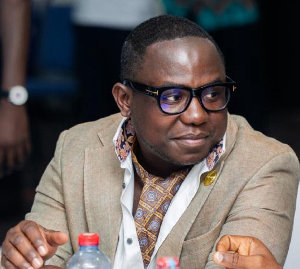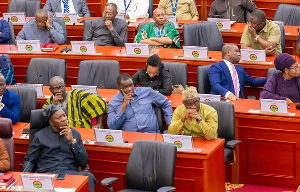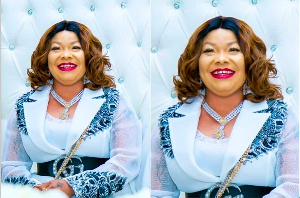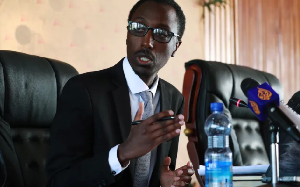“Now women, I just want you to know; you are not perfect, but what I can say pretty indisputably is that you’re better than us [men”]. Barack Obama
Former US president Barack Obama made this profound yet for some controversial statement in 2019 in Singapore. He added that, if women ran every country in the world, there would be a general improvement in living standards and outcomes.
As though Mr. Obama was making a prediction of some sort or hinting at women’s great leadership, then came a global pandemic, coronavirus, uncovered or perhaps forced the world to see what had already been there, the leadership of women. Women showed up and showed leadership as the crisis continues.
Presidents of Taiwan, Belgium, New Zealand and Germany who happen to be women have been commended for their effective policies and communication during the Covid-19 pandemic. Today the world celebrates the skills and attributes shown by these women in top leadership such as kindness, tolerance, honesty… just being caring.
Search the internet and you will find countless research showing a significant correlation between women’s leadership and development outcomes. In 2010 the Harvard Business Review (Are Women Better at Leading Diverse Countries than Men?) touted the legacy of President Ellen Johnson Sirleaf, who was the leader of Liberia and who worked to create an “inclusive and tolerant” government by reflecting in her government, religion, age, ethnicity and gender proportionally. Another feather in her cup is achieving the goal of gender parity in her cabinet.

Former Electoral Commission Chairperson, Charlotte Osei
In her first year of office alone, she doubled the number of female ministers. Liberia experienced an annual GDP growth rate of 4% in her first five years as president. President Sirleaf also made history as Africa’s first elected female president. Joyce Banda was the second woman to become president in Africa; before that she was the first female vice-president of Malawi.
Ghana might just be on its way to producing its first female vice-president and who knows, its first female president in the near future. History was made when one of the two biggest and influential political parties, the National Democratic Congress (NDC) named a woman, Prof. Naana Jane Opoku-Agyeman as the flagbearer’s running mate for the 2020 elections scheduled for December. Should the NDC win the election, the Professor will become the first Ghanaian woman to hold the office of Vice President, even more historic.

Hannah Tetteh, former MP for Awutu-Senya West constituency and Minister for Foreign Affairs 2013-2017
But amidst the confusion that seemed to hit the governing New Patriotic Party (NPP) and the excitement by girls, women and many others shared via #ImWithHer, misogynistic language was soon employed by those who opposed her nomination. Beneath what masquerades as the nasty, dirty game of politics was the opportunity to tear down a woman whose apparent competence mattered not. Male politicians are almost never attacked on the basis of gender in Ghana’s game of politics. However, it is difficult to believe that the attacks are solely because Prof Opoku-Agyeman is a woman. Rather, it would seem that those on the opposite side of the political divide view her gender as an easy way to score political points.
From insulting her looks, to slurs about menopause and mockery for being a divorcee, all the insults, attacks and harassment by political party foot soldiers, journalists and random folks were deemed acceptable because Ghana’s patriarchal society creates the conditions in which such attacks are possible.

Naana Opoku-Agyeman, Vice Presidential Candidate, NDC
The patriarchal world we live in is structured and ordered to erroneously portray leadership as male and often white. The result is the striking imbalance of women and men in leadership. As it stands women run only 7.4% of Fortune 500 companies and just 37 women of the companies’ CEOs are women This year’s ranking saw no black women. Past rankings revealed there were just two women in there. When you look around you, men dominate when it comes to positions, such as Presidents or Prime Ministers, CEOs, Pastors or Spiritual Leaders or Sheikhs, Ministers and MPs. Even in the home, the ordinary man is a leader by religious and biological acclamation, without any proof.

Ursula Owusu, Minister of Communications and MP for Ablekuma West.
The stereotypes about women in leadership are still deeply ingrained in the world today. The traits that can be generalized among women such as softness, kindness, tolerance, cooperativeness though touted as unique leadership qualities of women in recent times continue to be perceived as inadequate or unnecessary for successful leadership despite countless research that women are better leaders because of their people-oriented style of leadership. Other research found female leaders to be more transformational than male leaders.
In 2014, it was reported by the Caliper Research and Development Department that women leaders’ style of leadership was transformational and that women leaders were intellectually exciting, encouraging of employees in owning and pursuing their goals and inspiring. It would seem that there is more than just a business case for having more women in leadership given the link between women’s leadership style and what organizations today require of leaders (Are women better leaders than men?).
Sadly, the statistics suggest women’s continuous under-representation in leadership (Gender Diversity in Ghanaian Boardrooms). The “feminine” traits are still not good enough.
On the flipside when women leaders exhibit “masculine” traits such as being highly risk-prone, abrasiveness, etc. are not perceived as strong, competent and firm leaders, as would their male counterparts. On the contrary, they are seen as bossy, rude, disrespectful, incompetent or BITCHY and unacceptable by society. It’s a double-edged sword. Women’s competence is called into question by the mere fact of their gender and men’s competence is acclaimed by virtue of their gender.
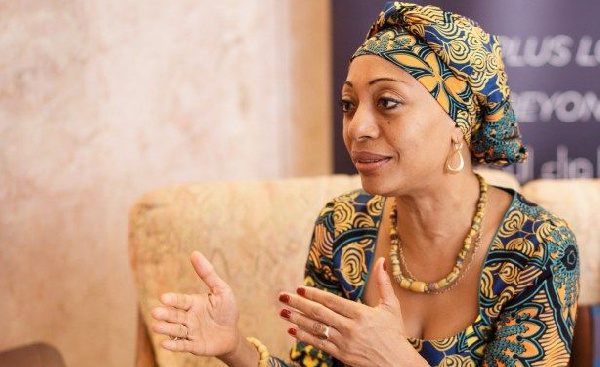
Samia Nkrumah, chairperson of the Convention People’s Party
Ghana’s potential first female vice president Prof. Naana is still not good enough in such a high office despite her academic success and many career achievements. Patriarchy continues to resist the elevation of women in society. The Ghanaian society is just as patriarchal as the world; perpetuating the diabolical dogma that men are and should continue to be the superior gender despite there being no rational basis.
But as we are learning from the coronavirus response around the world, the greatest leaders do lead from the heart and not from what is between their thighs. It behooves on us all; women and men to let love lead for all our sakes. It’s time to open those doors for women to participate or heck women just might break down the door.
Opinions of Thursday, 15 October 2020
Columnist: Francisca Kakra Forson
Women, competency and sexism
Opinions
